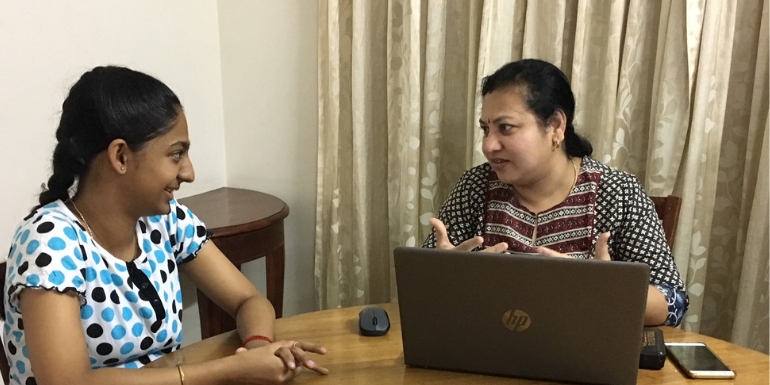Getting into IIT is a dream come true moment for tons of youths spread across the country.
If you are one of them too, its the right place you are in.
Some capable students fail to crack the JEE Advanced exam due to improper guidance and can’t make their way to the IITs.
But thats not a full stop to the story.
There are other examinations through which students can get the opportunity to be an IITian. Every set of examinations has its respective eligibility criteria and follows a definite path.
Here in this article, we are going to tell you how to get into IIT by cracking the JEE exams. We will also tell you the ways to get admission in the IITs without considering JEE as an option, what are the different exams available, and the required specifications.
What is IIT and Why do people Aspire to be Here?
Indian Institute of Technology is among the most prestigious institutions to pursue your degree in Engineering. Getting admission to the best engineering colleges of the country, not only opens loads of opportunities in front of you but holds a supreme value in terms of ambiance, faculty, and academic growth. You experience a wonderful environment, great peer discussion moments, and have the opportunity for bright exposure. Honestly speaking, the IIT tag is something highly prestigious and unlocks the gateways to various opportunities. During the course tenure, you collect a lifetime of memories, gain valuable knowledge not only from the highly qualified faculty but from your fellow mates too.
IITs encourage free discussion between the professors and students to help aspirants focus on their individual growth and make modifications as required. IIT is not limited to quality academics but ensures the best learning management, helping candidates develop supreme social skills.
How to get into IITs through JEE?
Before discussing in detail the process to get into IIT without cracking JEE, let us discuss how to do it through JEE!
Step 1: First you need to take the JEE mains examination. Among 90 questions in the paper, you will need to answer a total of 7 questions. There is no negative allocation for wrong answers as per the new set of rules. Give your best here! The candidates with exceptional results are shortlisted to move ahead with the next step.
To draw more details about the JEE mains exam you can check out this link.
Step 2: If you successfully clear the JEE mains exam, you are eligible to sit for the JEE advanced exam. Only candidates who satisfy the cutoff scores as prescribed by NTA in the JEE mains are shortlisted for this round. There are two question papers in JEE advanced. Three hours are allotted to both the papers.
Step 3: Now comes the most crucial part. You need to obtain an All India Rank (AIR) to be eligible for an IIT application. Only students with a minimum of 10% marks in Physics, Chemistry, and Mathematics and an overall aggregate of at least 35? are considered for the ranks. The criteria might differ as per the student categories.
More details regarding the JEE Advanced examination are available here at this link.
Step 4: The last and most crucial step includes participating in the Joint Seat Allocation Authority common process. You are eligible for this process only if you have an All India Rank.
If you don’t make it with the JEE exams, no need to be upset. There are other ways to seek admission to your dream college. All you need is supreme willpower and dedication to making it happen.
M.Tech/ME in IIT: Eligibility
Masters of Engineering or Masters of Technology is a two-year postgraduate course the students can go for after completing their B.Tech/B.E. in the relevant stream from a recognized university. The areas of specialization are varied in this two-year course and the students can apply accordingly.
The common entrance exam score accepted for ME admission in the IITs is the GATE. Candidates with B.E./B.Tech degree and satisfying GATE score are eligible for the Masters of Engineering or Masters of Technology Program in the prestigious IIT. However, there are some other exams too that can help you land a course in the IIT other than engineering and technology. We are going to discuss each of these minutely here in this article.
Exams other than JEE to get into IIT
The list of exams that opens the doors to specific courses in the Indian Institutes of Technology isn’t limited to a few. However, the candidates need to have a clear conception of each of the exams in detail and the required criteria. Here goes the following:
1: GATE (Graduate Aptitude Test in Engineering)
The Graduate Aptitude Test in Engineering is conducted to test candidates on their understanding of the undergraduate engineering and science subjects for admission into the masters program. GATE exam cutoff scores vary as per the courses and the respective institutes. To appear for the examination, the candidates need to fulfill the following eligibility requirements:
- Age Limit: No age restriction for students to attempt the GATE Examination.
- Academic Qualification: The candidates need to be engineering/technology graduates with a relevant science degree from a recognized university. Students appearing in the pre-final year of their degree are eligible to apply as well.
- Nationality: Candidates from and outside India are eligible to appear for the GATE exam.
Cracking the GATE exam helps the students with multiple opportunities and eases the pathway to something special. After cracking the GATE exam successfully, candidates are eligible for Masters of Engineering (ME), or Tech (Masters of Technology), or Doctor of Philosophy programs in the reputed and much sought-after IITs.
2: JAM (Joint Admission Test for Masters)
The candidates can take the Joint Admission Test for Masters (JAM) exam for admission into various M.Sc and integrated Ph.D. in the IITs. However, the exam has certain criteria, failing which will reject the students to sit for the exam. Here are the details:
- Age Limit: There are no age boundaries for aspirants to take the Joint Admission Test for Masters.
- Academic Qualification: The general and OBC candidates must hold a bachelor’s degree in the relevant subject with a minimum of 55% marks or equivalent CGPA from a recognized university. For reserved category candidates (SC/ST) the aggregate has to be a minimum of 50% with the equivalent CGPA from a recognized institute.
Cracking a competitive exam like JAM and getting places into one of your dream colleges requires a lot of hard work and concentration.
3: UGC NET (National Eligibility Test)
If you are someone done with your Masters and looking forward to research opportunities from IITs, then UGC NET is the exam to choose. One of the most prestigious and high standard exams in the country, cracking the UGC NET exam will make you eligible to apply for research programs in the IITs. There is a set of eligibility requirements as supervised by the authorities to be eligible for the examination. Let’s take a look at them.
- The candidates under the general or OBC category must hold a masters degree in the relevant subject from a UGC accredited university or institute with a minimum of 55% marks. In the case of SC/ST candidates, the minimum aggregate percentage has to be 50%.
- Candidates appearing for the Masterss final year or have already appeared and are awaiting results can apply too. However, the admission is provisional in that case until their results come out with a minimum of 55% marks or equivalent CGPA in the concerned subject.
After you crack the UGC NET exam or satisfy the cutoff criteria, you can apply for Junior Research Fellowships programs in IITs.
4: UCEED (Undergraduate Common Entrance Exam for Design)
Undergraduate Common Entrance Exam for Design takes place to select suitable candidates in the BDes courses at IIT Hyderabad, IIT Bombay, IIT Guwahati. Indian students as well as the foreign nationals willing to attempt the UCEED exam need to satisfy the set of criteria as prescribed by the conducting authority.
- The candidates need to complete their 10+2 exam or equivalent from a recognized institute.
- Candidates under the General/ OBC/NCL category have the age limit of 25 to apply for the exam whereas for SC/ST candidates it is 30 years. Five years age relaxation is applicable for the reserved category candidates.
- As per the authority rules, candidates can take the UCCED exam for two consecutive years. The UCEED grade is valid for only one academic year.
- Students irrespective of the stream can choose to sit for the UCEED exam as long as they satisfy the minimum eligibility requirements.
Attempting UCEED mock test papers, practicing sketching, and having a clear concept about the ongoing affairs are some basic tips to expect good results in the said examination.
5: HSEE (Humanities and Social Sciences Entrance Examination)
IIT Madras conducts the national level exam, Humanities, and Social Sciences Entrance Examination to admit candidates to the humanities and social sciences five-year integrated masters program offered by the concerned department of the institution. Candidates aspiring to sit for the exams must fulfill the eligibility criteria as set by the conducting body. Lets take a look at it!
- The general/OBC candidates need to pass the qualifying examination with a minimum of 60% aggregate whereas for the SC/ST candidates it is 55%.
- A supportive certificate specifying the concerned marks has to be submitted by the candidate during the joining time.
The candidates must qualify for any one of the following examinations to be eligible:
- 10+2 or equivalent exam recognized by Indian Association of Universities
- Two-pre University examination accredited by the Indian Association of Universities
- H.S.C vocal examination
- Senior Secondary School Examination authorized by National Institute of Open Schooling
- General Certificate General Examination at the A level.
Wrapping Up
This was all about the steps to get into IIT. Success requires time and hard work. If you are confident and ambitious enough to indulge yourself in that much hard work think no more and go for it. Before applying for any of those examinations, make sure you satisfy the eligibility requirements, or else the candidature will be canceled. We wish you good luck!













